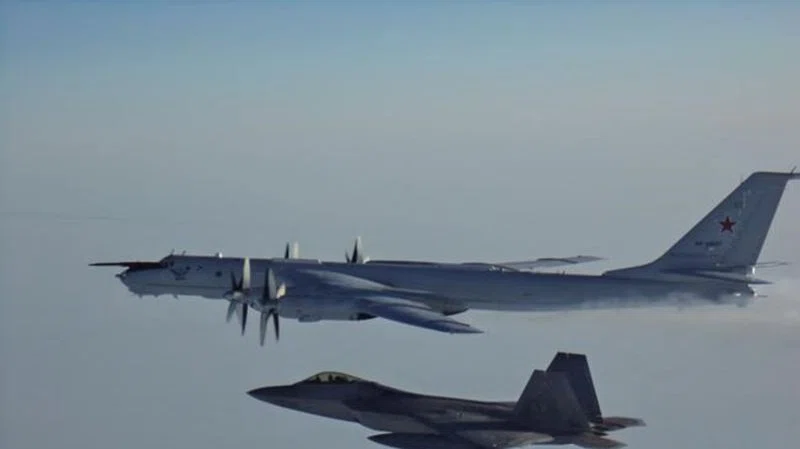
Canadian, U.S. fighter jets intercept Russian aircraft off Alaskan coast
OTTAWA — U.S. and Canadian fighter jets have intercepted and escorted two Russian reconnaissance planes flying off the coast of Alaska, only days after Canada’s top general described Russia as the greatest immediate threat to North America.
Canadian CF-18s and American F-22s were scrambled Monday after the North American Aerospace Defence Command spotted the two Russian Tu-142 Bear aircraft approaching the Alaskan coast, Norad said in a statement.
The Russians remained in international airspace over the Beaufort Sea north of Alaska for about four hours before departing, according to Norad. They approached within 50 nautical miles, or 92 kilometres, of the Alaskan coast, but did not enter U.S. or Canadian airspace.
The Tu-142 is a long-range maritime reconnaissance and anti-submarine aircraft, though one version of the plane can be used to communicate with Russian ballistic submarines.
